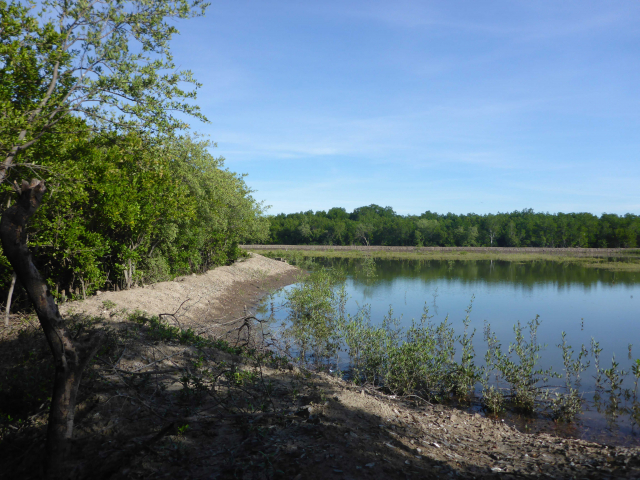Research aims
Mangroves provide numerous ecosystem services both to local societies and to humankind worldwide. Protecting them or one particular service will result in numerous co-benefits. The implementation of aquaculture ponds, however, causes significant area losses of mangroves in many regions worldwide.
Hence, developing concepts that allow for the coexistence of aquaculture and mangroves and lead to societal, ecological and economic benefits to local communities is of pivotal importance. ZMT will provide scientific background and knowledge for decision-making and the conversion of aquaculture into Integrated Mangrove Aquaculture (IMA).
KATRINA aims at the development and establishment of IMA concepts for existing shrimp and mud crab aquaculture in North Kalimantan as well as at providing a basis for ecologically and economically beneficial breeding and growing of the respective stocks. With several case studies, the ecological and economic effects of mangrove afforestation in and around aquaculture ponds, along with co-benefits for costal protection, biodiversity and climate change mitigation, shall be identified. By comparing natural and aquaculture-supported shrimp and mud crab production, ecological relevance and economic potential of the concept will be studied.
Through close cooperation with local partners, such as universities, community groups and Indonesian officials, direct knowledge exchange and capacity development with regards to mangrove and aquaculture management approaches shall be improved towards ecological and economic sustainability.





